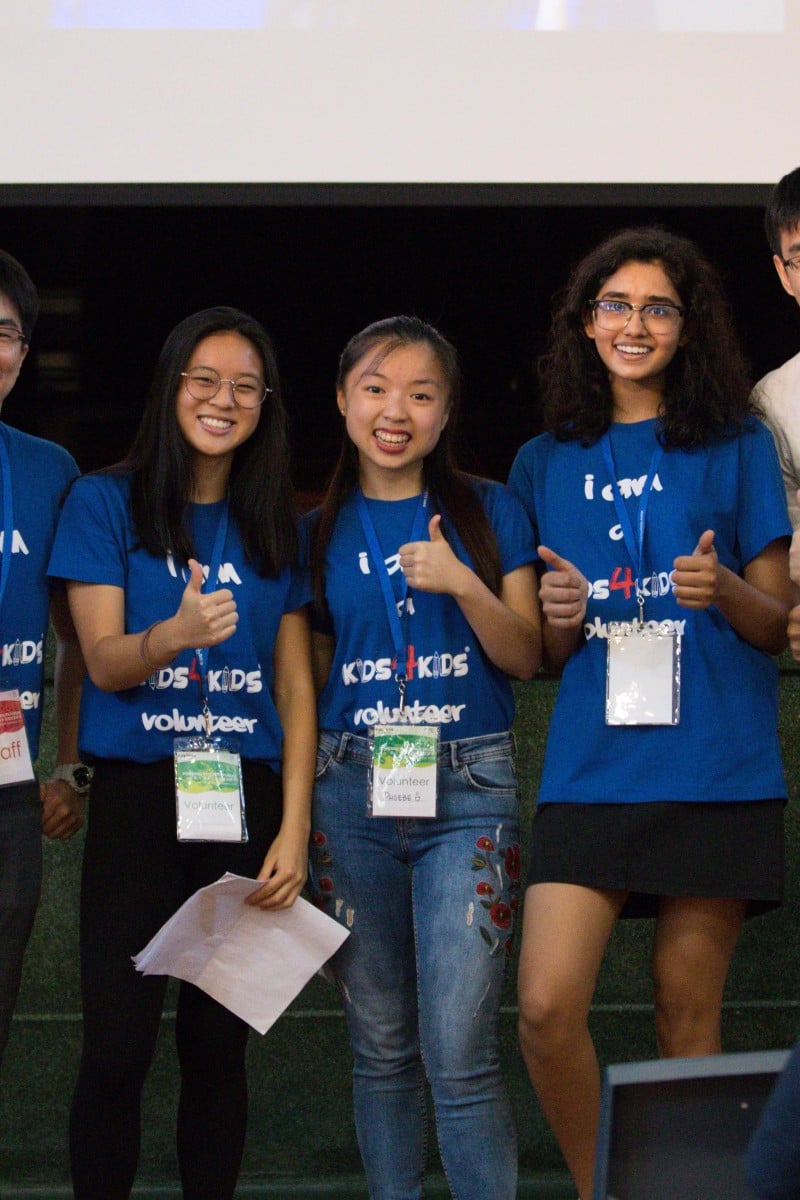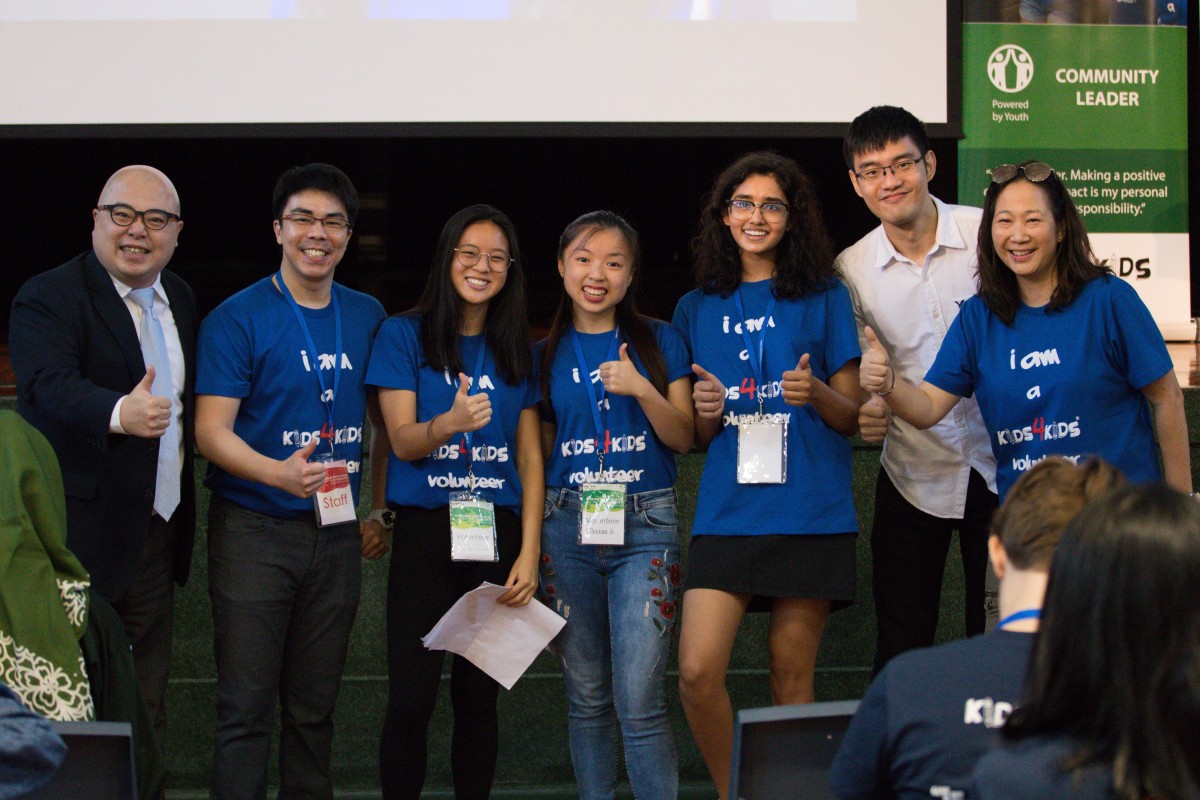
Kids4Kids leader Mark Cheung tells us why he is confident that young people will change the world
 Mark Cheung (second from left) was inspired by what he saw at this year’s Powered By Youth Forum, an event where teens meet experts to discuss current issues, and learn how they can make a difference.
Mark Cheung (second from left) was inspired by what he saw at this year’s Powered By Youth Forum, an event where teens meet experts to discuss current issues, and learn how they can make a difference. After spending 10 years witnessing first-hand the struggles of Hong Kong’s most disadvantaged groups, you might expect things to begin to take their toll on a person.
But for Mark Cheung, the new executive director of youth charity Kids4Kids, serving the community is just as important to him as it has always been, even after a decade of working in the charity sector.
“I’ve been driven throughout my career by serving the underprivileged,” said Cheung, “whether it’s those in need of health care, housing or education, both in and beyond Hong Kong.”
Despite graduating from university with a degree in engineering, Cheung was never interested in working in that field. Instead, he earned a second degree in business management, before joining an NGO in 2009.
He explained that around that time, Hong Kong was overflowing with charities all competing for support, and fresh talent. There were especially in need of people with good business skills. Cheung decided to try his luck and apply for a job, and so began what was to become a lifelong career.
Now, as the head of one of Hong Kong’s leading youth organisations, Cheung plans to take Kids4Kids to the next level. How? By tailoring the charity’s programmes to the various schools that take part in them.
“The kids at local and international schools do have a different mentality towards, and understanding of, social issues,” he said. “So if we go to local schools, we might have to adapt our programmes. We’ve been developing programmes very well over the past eight years, but what we might lack is a more strategic view.”
Of the six programmes that Kids4Kids is running, Cheung is especially enthusiastic about Code + Create, a course designed to get students involved in coding. The programme, which was launched last year, is running in seven schools and one community centre. That translates into more than 2,500 coding hours for students.
“Coding is a hot topic right now,” said Cheung. “It requires innovation and it’s fun to learn. Also, the Hong Kong government is strongly pushing Stem education. We’re all very excited about the programme.”
Cheung added that Kids4Kids hopes to gain more funding so that it can make Code + Create available to more students across Hong Kong.
Cheung’s appointment as head of Kids4Kids in July hasn’t stopped him from working on the ground as he has always done.
“I’m doing a lot of leadership work and strategic planning, but that doesn’t mean I can’t do the hands-on operational work. I’m always ready to roll up my sleeves,” said Cheung. He added that he tries to live by his mother’s motto: treat people as people, rather than assets. As such, he is constantly amazed and inspired by those around him.
At the recent Powered by Youth Forum, for example, Cheung watched some 200 to 300 teenagers gather to discuss issues they cared about.
Seeing them getting involved and being vocal about their concerns gave him hope for what future generations will achieve.
“They talked about trees, polar bears and global warming; the fact that they actually want to do something about it is very inspiring,” he said.
7 real-life skills that will make growing up and going to university better for you
Cheung added that he felt confident that in 10 to 20 years’ time, these teens would be the ones driving social change.
“When I was 15 years old, education was about getting good grades and going to university. It dominated my daily life,” recalled Cheung.
But now, Cheung said, “I hope to see young people developing their creative, critical-thinking and problem-solving skills”.
